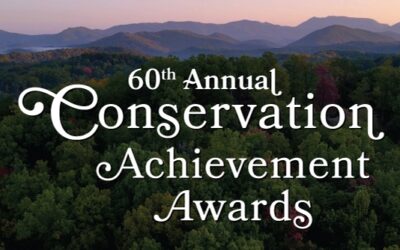Tennessee Wildlife Federation is the only wildlife organization with a consistent presence in our state’s capitol.
We work to ensure the concerns of sportsmen and outdoor enthusiasts are represented by our state’s leaders.
The Federation’s policy team monitored and weighed in on dozens of issues facing Tennessee’s great outdoors. Here are just a few notable bills and issues we were able to shape.
Quick Links to the Issues
- Politicizing Deer/Elk Urine Rules
- Eliminating Basic Rules for Commercial Paddlecraft Rentals (SB1416/HB1171, SB751/HB1243, and SB665/HB1328)
- Funding for the Asian carp Fight
- Public Lands Package (John D. Dingell, Jr. Conservation, Management, and Recreation Act, S. 47)
- Farm Bill (Agriculture Improvement Act of 2018, H.R. 2)
Bill: Politicizing Deer/Elk Urine Rules (SB0377/HB1201)
The Federation’s Position: Opposed
Status: Withdrawn
Problem: The prion that causes chronic wasting disease (CWD) is spread through saliva, feces, blood, and urine. Natural and synthetic deer and elk urine are commonly used by hunters to mask their scent. Rules are needed to prevent the spread of the disease. However, this legislation would have banned certain urines, taking wildlife management control from the Tennessee Fish and Wildlife Commission and its science-based approach to conservation.
Importance: The Tennessee Fish and Wildlife Commission was formed to keep politics out of natural resource management and, instead, guide wildlife conservation using the best available science. This bill would have overridden the Commission’s ability to place common sense rules on the deer and elk urine hunters can use in order to keep the state’s deer and elk populations healthy.
The Federation’s Role: The Federation helped stop the bill and supported changes to the Tennessee Fish and Wildlife Commission’s rules about urine-based scents. The new standard is based on the Archery Trade Association’s certified urine program, which is a scientifically valid approach to synthetic and certified-safe natural urines.
Bill: Eliminating Basic Rules for Commercial Paddlecraft Rentals (SB1416/HB1171, SB751/HB1243, and SB665/HB1328)
The Federation’s Position: Opposed all three bills
Status: Defeated for the year or amended
Problem: Commercial canoe and kayak rental services have grown quickly and without rules that could decrease unsafe practices and conflicts that too greatly reduce individual anglers’ and paddlers’ ability to use public waterways. In response, Tennessee Wildlife Federation secured the passage of a 2018 law that gave the Tennessee Fish and Wildlife Commission the authority to create rules for commercial paddlecraft operators. The Commission led a public process to develop rules that were unanimously approved to begin July 1, 2019. This spring, three bills were filed in the Tennessee General Assembly that could have limited—or completely rolled back—the new rules before they even take effect.
>>LEARN MORE: Sharing our rivers
Importance: The Commission, and by extension the Tennessee Wildlife Resources Agency, is responsible for managing our public waterways, from law enforcement on the water to conserving fish below the surface. The new rules required commercial operators to obtain a permit, meet certain safety standards, and document where and how many commercial trips they generate. No fees were included in the rules. Only with these measures does the Agency have the basic tools and data needed to ensure our public resources are being enjoyed by everyone.
The Federation’s Role: The Federation assembled a delegation of anglers, paddlers, and fishing guides that conducted outreach to legislators to inform them about the critical need for basic rules and data collection. Through our efforts, one bill was deferred to 2020, another was referred to a subcommittee, and another was amended and passed in a form we supported.
Funding for the Asian carp Fight
In August 2018, the Federation began convening a monthly, multi-state Asian carp strategy call that includes a diverse mix of federal and state agencies, national conservation groups, and U.S. Senate and House staffers from three states. After giving participants the opportunity, for the first time, to come together and share essential information and strategies about Asian carp, the Federation turned the focus to funding. Only with significant federal funding will Tennessee and other Southeastern states have the resources needed to meaningfully fight Asian carp.
Along with partner legislators, the Federation is coordinating an effort to secure a federal Asian carp appropriation. This includes securing support for a so-called Dear Colleague letter, which is often the first step to an appropriation. The letter was signed by 15 members of the House, including all but one Tennessee Congressman. At the same time, the Federation’s Asian Carp Coalition has grown to more than 85 Tennessee-based businesses, organizations, and chambers of commerce.
Bill: Public Lands Package (John D. Dingell, Jr. Conservation, Management, and Recreation Act) (S. 47)
The Federation’s Position: In favor
Status: Passed
Problem: Dedicated and complete funding is desperately needed to fund many types of management and conservation of our nation’s natural resources on public lands. Despite the obvious need, years of neglect and chronic underfunding have eroded our shared national treasures.
Importance: This bill sets forth dozens of provisions on various programs, projects, activities, and studies for the management and conservation of natural resources on federal lands. Significantly, the bill permanently reauthorized the Land and Water Conservation Fund. The Fund uses royalties from offshore oil extraction to make grants for outdoor recreation land, improving access to public lands and waters, protecting fish and wildlife habitat, and increase opportunities for sportsmen. While the reauthorization of the Land and Water Conservation Fund is important, funding is not yet guaranteed.
The Federation’s Role: The Federation has long supported permanent reauthorization of the Land and Water Conservation Fund. We will continue to support passage of the Land and Water Conservation Fund Permanent Funding Act (S. 1081) to ensure full and dedicated funding.
Bill: Farm Bill (Agriculture Improvement Act of 2018) (H.R. 2)
The Federation’s Position: In favor
Status: Passed
Problem: Tennessee is home to more than 60,000 farms that together cover 10 million acres. That means nearly 40 percent of the state’s land—as well as the streams and prime wildlife habitats in that area—are heavily influenced by the conservation practices of private landowners.
Importance: The Farm Bill is the largest source of private land conservation funding in the nation. It provides about $5 billion in funding for conservation programs to help farmers and ranchers keep land in production while improving the condition of natural resources. Supporting good management of these natural resources is critical to all of Tennessee’s wildlife, water, and wild places.
The Federation’s Role: The Federation was strongly supportive of a Farm Bill that is protective of our nation’s soil, water, and wildlife. We signed on to a national letter, along with 42 other National Wildlife Federation affiliates, making recommendations for a wildlife-friendly Farm Bill.
Featured photo by Susan Hay




